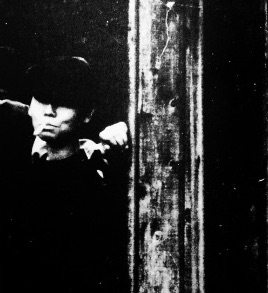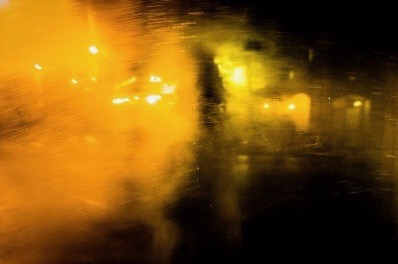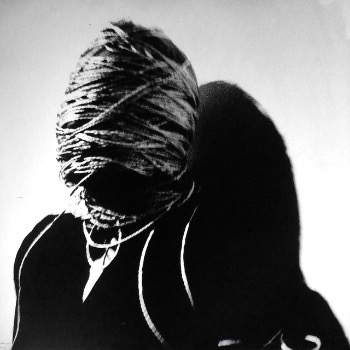Guy Debord was the avant-garde’s Christ. Guy Debord was the avant-garde’s Christ. He was immolated by his own ideology, which he more than anyone (Tzara, Duchamp, Artaud, the Viennese Actionists…) had pushed to its extremes. He covered all of its possibilities, all of its impasses. His extreme attempts were neither successes, nor failures. Today, his path should be evaluated through other methods: the ones left to us in the wake of the avant-garde’s disappearance. To put it as Reiner Schürmann does: truth is a “conflictuality without agreements.” It is within Debord’s insurmountable contradictions, whose political, aesthetic, and existential preoccupations were…
Tag: Situationist International
DIE AFFÄRE LEBOVICI | PSYCHOGEOGRAPHIE [ACTE XVIII]
Zum Umsturz aller bestehenden Ordnung aufzurufen / Scheint furchtbar. / Aber das Bestehende ist keine Ordnung. // Zur Gewalt seine Zuflucht zu nehmen / Scheint böse. Aber da, was ständig geübt wird, Gewalt ist / Ist es nichts Besonderes. Bertolt Brecht Die ganze Affäre [wie auch der modus operandi] ist geprägt von einem Klima persönlichen Verrats und politischen Hinterhalts: Gérard Lebovici [Herausgeber der Editions Champ Libre, Produzent und Freund Guy Debords] in einer Tiefgarage in der Avenue Foch, Chaillot. Porte Dauphine mit vier Kugeln im Hinterkopf auf dem Vordersitz seines Wagens; Polizei, D.S.T. & Renseignements généraux zeichnen eine…
Guy Debord | Panegyric
“Panegyric means more than eulogy. Eulogy no doubt includes praise of the person, but it does not exclude a certain criticism, a certain blame. Panegyric involves neither blame nor criticism.” LITTRÉ, Dictionnaire de la langue française. “Why ask my lineage? The generations of men are like those of leaves. The wind casts the leaves to the ground, but the fertile forest brings forth others, and spring comes round again. So it is that the human race is born and passes away.” Iliad, Canto VI. I “As for his plan, we profess to be able to demonstrate that there…
Best Books of 2018
Anne Boyer | A Handbook of Disappointed Fate (Ugly Duckling Presse) Leslie Kaplan | Excess — The Factory (Commune Editions) Mark Fisher | K-Punk (Repeater) Bertolt Brecht | The Collected Poems of Bertolt Brecht (W.W. Norton) Wendy Trevino | Cruel Fiction (Commune Editions) Lola Ridge | To the Many (Little Island Press) Auguste Blanqui | The Blanqui Reader | Political Writings (Verso) Jackie Wang | Carceral Capitalism (Semiotext(e)) Roberto Ohrt, Wolfgang Scheppe | The Most Dangerous Game (Merve Verlag) Arthur Rimbaud | Korrespondenz, Briefe, Texte und Dokumente (Matthes & Seitz Berlin) Nathalie Quintane | Un oeil en moins (P.O.L.) Fred…
Tiqqun | This Is Not a Program
“’77 wasn’t like ’68. ’68 was anti-establishment, ’77 was radically alternative. This is why the ‘official’ version portrays ’68 as good and ’77 as bad; in fact, ’68 was co-opted whereas ’77 was annihilated. This is why, unlike ’68, ’77 could never make for an easy object of celebration.”
— Nanni Balestrini, Primo Moroni, L’orda d’oro
Guy Debord | All the King’s Men
What is poetry if not the revolutionary moment of language, inseparable as such from the revolutionary moments of history and from the history of personal life? […] The point is not to put poetry at the service of revolution, but to put revolution at the service of poetry. […] Every revolution has been born in poetry, has first of all been made with the force of poetry. This phenomenon continues to escape theorists of revolution — indeed, it cannot be understood if one still clings to the old conception of revolution or of poetry . . .
Henri Chopin
Born in 1922 in Paris, Chopin is one of the key figures of the international neo-avantgarde. His career goes back to the fifties, and he was one of the founders of sound poetry. During World War II he was obliged to do forced labour in 1942, and a year later, the Germans deported him to Olomuk in Czechoslovakia. Between 1944 and 1945 he found himself on the ‘death march’ towards Russia. The terrible conditions during the war were a source of inspiration for his works, but 1955 saw a turning point in his poetical interests. On the island of…
Ralph Rumney | The Consul
Ralph Rumney | The Consul PDF Ralph Rumney has been in constant flight from the wreckage of postwar Europe. Crossing paths with every avant-garde of the past fifty years, he was one of the founding members of the Situationist International. Rumney’s traveling companions — Guy Debord, Pegeen Guggenheim, Asger Jorn, Michèle Berstein, Bernard Kops, Yves Klein, Marcel Duchamp, Georges Bataille, William Burroughs, Félix Guattari, E.P. Thompson, Victor Brauner, and many others — are recalled in the oral history with sharp intelligence and dry wit. The Consul: Contributions to the History of the Situationest International and Its Time…








